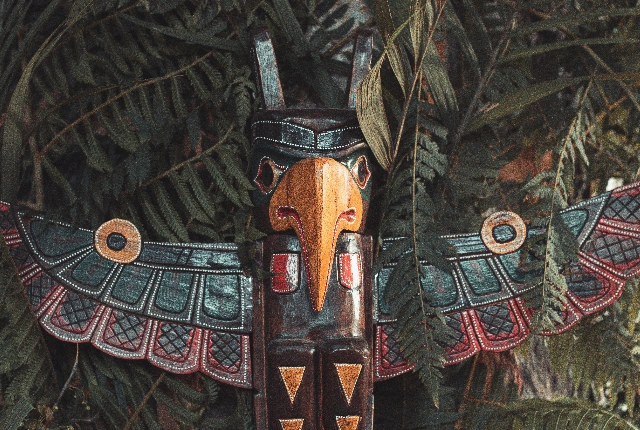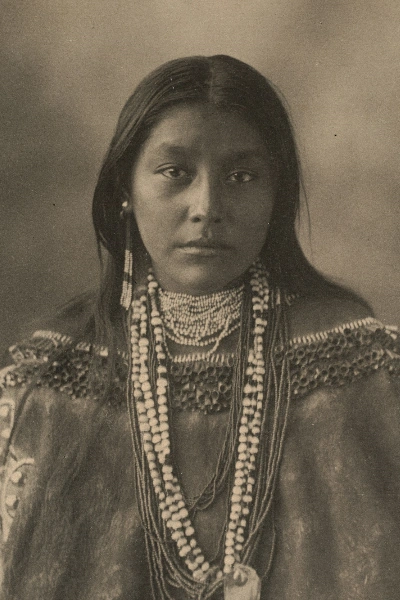Physical Address
304 North Cardinal St.
Dorchester Center, MA 02124
Physical Address
304 North Cardinal St.
Dorchester Center, MA 02124

Years ago, the Potawatomi tribe of Native Americans, located in what is now northeast Wisconsin around the Great Lakes area, began teaching their children seven philosophical teachings that would help them to have good relations with their fellow tribesmen and have a healthy attitude toward all creatures in nature. Called The Seven Grandfather Teachings, they are: wisdom, respect, love, honesty, humility, bravery, and truth.

With slight updating to fit into our modern global society, these ancient teachings are important enough to apply to all human cultures and need to be learned and practiced, especially in today’s world of political, social, and religious turmoil.
Perhaps these ideas and a few others like them can help bring us together regardless of national identity, religious dogma, or political affiliation, and help us realize that conflict and contention are behaviors that each individual should grow out of in order to become the rational and peaceful human being that each one of us is capable of being. The ideas expressed go beyond religion, politics, social status, or cultural identity and are relevant to all human interactions today.
The first of the Seven Grandfather Teachings is wisdom. We humans are a smart species. Our trove of knowledge in every imaginable subject is astounding and it grows daily. Yet, we are constantly confronted with the fact that our knowledge does not always translate into wisdom. For example, we know enough about mathematics, metallurgy, and explosives to build a destructive armed missile, but so far, we have not shown enough wisdom to understand that we should not need it. True wisdom would be putting aside our weapons as unnecessary relics of our past.
A poignant quote by Orville Wright makes a strong point about our technological knowledge outpacing our wisdom. In 1943, in the midst of World War II, he was asked by a newspaper reporter how he felt about the progress in airplane technology in the last 40 years, and about how airplanes were being used in the war. Speaking for himself and his deceased brother, Wilbur, Orville responded: “We dared to hope we had invented something that would bring lasting peace to the Earth. But we were wrong. We underestimated man’s capacity to hate and to corrupt good means for an evil end. No, I don’t have any regrets about my part in the invention of the airplane, though no one could deplore more than I the destruction it has caused.” The Wright Brothers wanted to give humanity a new and better mode of transportation, not invent a deadly killing machine.
While we take great pride our many inventions and discoveries, the great challenge is using them appropriately. Just because we can turn mass into energy, does not mean we should use that energy to kill each other with atomic bombs. In our past, guns helped hunters feed their families. Today there should not be a need to make guns to kill humans.
The next of the Seven Grandfather Teachings is respect. The human body is a marvel of biological complexity. That fact in itself is enough for each of us to respect what evolution and time has developed. Beyond that is the human brain, which is often called the most complex thing in the known universe. The brain runs all of our physical systems and keeps the body in a state of homeostasis. If that were not enough to garner respect, the brain also thinks. And therein lies the challenge.
It is the thoughts we have that lead us to respect others and behave in a manner such that we are respected by others. Yet, some of us, whether a thug in a dark alley or a dictator sitting in a gilded office, do not respect human life enough to be respected by others. To be respected, you must respect others. Those who do not respect others lose the respect of others.
Love is the next of the Seven Grandfather Teachings. Being social animals, we all want to love our kinsmen and spouse and to be loved by them and others. We sing about love and write beautiful poems about it. We love the idea of love, that is, of everyone sharing an outlook of cooperation and mutual benefit. Human symbiosis might not be a common definition of love, but it does express the idea of people coming together with the goal of helping each other and society in general.
Although love is an overused term, the concept of interacting peacefully and productively with others whether next door or across the world is admirable.
Another important one of the Seven Grandfather Teachings is honesty. In any society, people must be able to trust in each other or the society falls apart. Have we for so long put our trust in our plethora of gods that we have forgotten that it is our fellow humans who we must trust. Our commerce and every daily interaction must take place in an atmosphere of mutual trust.
It is disheartening that so much of the information we are constantly bombarded with is not true and that the perpetrators are dishonest. From false newscasts to phone scams, we the people are crying out for honesty and integrity in all of our interactions. Think long-term. Honesty prevails; dishonesty eventually recedes.
Showing humility and treating everyone as an equal is important in the Seven Grandfather Teachings. Prejudice and feelings of superiority divide us into absolutely unnecessary antagonistic factions. We see it every hour of every day in our news reports. Be humble regardless of your self-esteem. The world does not need any more narcissism; there is too much of that in the world now from playground bullies to dictators ruining nations.
Be humble and do the best you can for others. Your work and your attitude will be appreciated and you will be complemented appropriately. Always remember to treat others as you wish to be treated. Listen to others and learn from them.
In the Seven Grandfather Teachings, bravery can have many manifestations. What readily comes to mind when one hears the word bravery is a courageous hero in battle who risks his or her life to save others and thwart the enemy. Bravery, however, can be as personal as walking through a dark forest alone at night or as mundane as crossing a busy intersection just before the street light is changing.
A person who sees and acts on a moral obligation when others shun their duty is brave. Bravery is not going along with a destructive and mindless mob. You show courage when you walk away from your friends who are intent on doing something wrong or harmful. Bravery is having strong moral convictions and sticking by them in the face of adversity.
If you see a situation that is causing harm or distress to someone or to a group, try to be brave enough to step in to cause a change for the good.
One of the most misused of the Seven Grandfather teachings is the term truth, which, like the term love, takes on a variety of meanings depending on the circumstances. One important example is that we humans have always been concerned about finding out the truth about our origins. Nearly every culture, regardless of its level of technological sophistication has an origin myth, and for many people the myths became their reality…their truth.
We’ve all heard the expression: “You shall know the truth and the truth will set you free.” We all want to be told the truth about everything and be free to make decisions about our opinions and our conduct based on factual truth. Yet today there is a great deal of information being spewed out through various media outlets that claims to be the truth that upon close observation is not true at all.
Instead of freeing people, these false truths that are often aimed at promoting a particular social or political agenda, entrap those who believe them into situations where they are unwilling to look beyond the surface statements they want to believe. They do not bother seeking the evidence behind a statement.
That is why science is so important in our world today. The whole point of the scientific method is using research and evidence to make discoveries about our world, ourselves, and our universe that are as near the truth as humanly possible. Science seeks truth as its ultimate goal. Of course, scientists are human and make human mistakes, and as our instruments and technologies evolve, we learn that sometimes old hypotheses need to be adjusted. But an honest and dedicated scientist does not purposely distort the results of a discovery. The few who would do that should not call themselves scientists.
There are a few absolute truths. The fact that the sun rises in the east and sets in the west is true for everyone around the world. But truth can be relative, especially when humans form opinions. If three different companies tell you their product is the best on the market, they cannot all be telling the truth. if someone tells you their favorite political candidate is the best, another person might disagree. Although the people who profess these truths might wholeheartedly believe them as absolute, they are still relative truths.
We humans live with a multitude of relative truths. What, then, is the difference between a relative truth and a lie? Is it intent? If a person tells you something he or she believes is true, is it a relative truth? If a person tells you something that he or she knows is not true, it is a lie.
It is sad that so many people tell lies and dwell on the negative aspects of our human interactions. In our modern world of constant information, we must be cautious and discerning. Knowing what to believe and who to trust can sometimes lead to anxiety and frustration.
Important human truths like these seven teachings last beyond the cultures that create them. The Seven Grandfather Teachings of the Potawatomi contain a philosophy for wise living that transcends cultures and times. They are universal and timeless.
Ted McCormack